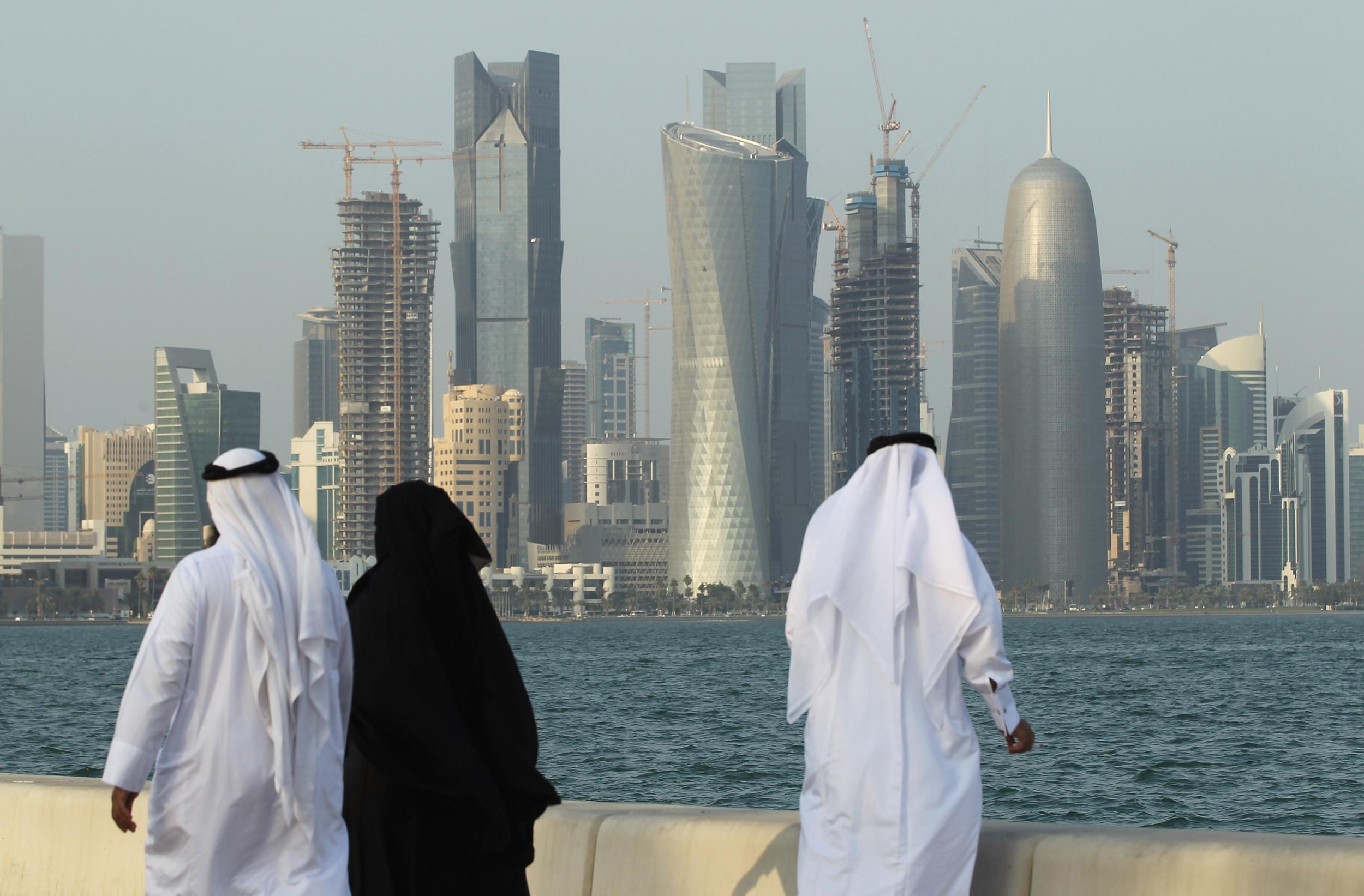Gulf blockade: UAE must reunite Qatari families, UN court finds
Interim International Court of Justice order finds international law on discrimination on basis of national origin may have been breached in Gulf diplomatic spat

Your support helps us to tell the story
From reproductive rights to climate change to Big Tech, The Independent is on the ground when the story is developing. Whether it's investigating the financials of Elon Musk's pro-Trump PAC or producing our latest documentary, 'The A Word', which shines a light on the American women fighting for reproductive rights, we know how important it is to parse out the facts from the messaging.
At such a critical moment in US history, we need reporters on the ground. Your donation allows us to keep sending journalists to speak to both sides of the story.
The Independent is trusted by Americans across the entire political spectrum. And unlike many other quality news outlets, we choose not to lock Americans out of our reporting and analysis with paywalls. We believe quality journalism should be available to everyone, paid for by those who can afford it.
Your support makes all the difference.The United Arab Emirates (UAE) may have discriminated against Qatari nationals after the Gulf diplomatic spat erupted last year, the United Nations' highest court has said..
The International Court of Justice (ICJ) said in a provisional order that the UAE must immediately reunite families and allow students previously resident there to continue their studies after Qataris were kicked out of the country in June 2017.
It also found Qataris should be allowed access to judicial services in the UAE.
Along with Saudi Arabia, Bahrain and Egypt, the UAE abruptly cut off all diplomatic and trade ties with tiny Qatar last year, alleging that the state interfered in the affairs of its neighbours and funded terror organisations.
Qatar has denied the lengthy allegations against it, claiming the crisis is politically motivated.
According to the country's National Human Rights Committee, the ongoing Gulf blockade has significantly affected around 13,000 Qatari nationals, including 646 families who have been split up as a result.
The ICJ case against the UAE bought by Qatar last month alleged that the Emirates had violated international law by expelling thousands of resident Qataris and freezing their assets, as well as banning travel and shutting down the Qatari-owned al Jazeera’s news operations in the country.
The “discriminatory measures directed at Qataris based expressly on their national origin” breached the International Convention on the Elimination of All Forms of Racial Discrimination (CERD), to which both countries are signatories, Qatar alleged.
The other parties involved in the dispute - Saudi Arabia, Bahrain and Egypt - are not signatories of the CERD convention.
While the UAE initially argued the case was without merit and should be dismissed, Emirati officials welcomed the ruling.
“The summary of the International Court of Justice decision today addressed what is known as the provisional measures and the judges' rejection to the Qatari demands, calling for three measures concerning families, student and access to litigation, which the UAE has executed in accordance to its national regulations after the steps taken by the four nations against Doha,” UAE foreign minister Anwar Gargash said in a tweet.
“This is just the first step in a long struggle to vindicate our rights, but it sends a strong early signal to the UAE that its actions will not be tolerated,” a statement from the Qatari foreign ministry said.
The ICJ’s order is a provisional measure and will remain in place until the court hears the full case and makes a final ruling at an undermined later date.
The court has no power of enforcement, but the UAE said it has already been implementing the ICJ's ordered procedures.
Join our commenting forum
Join thought-provoking conversations, follow other Independent readers and see their replies
Comments